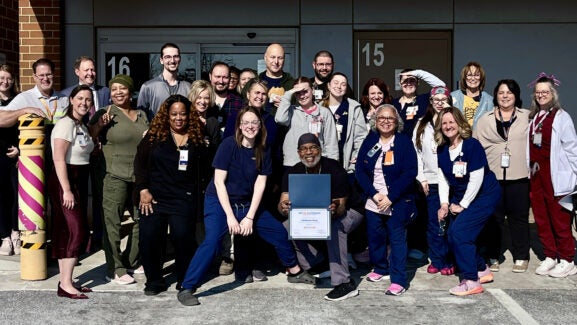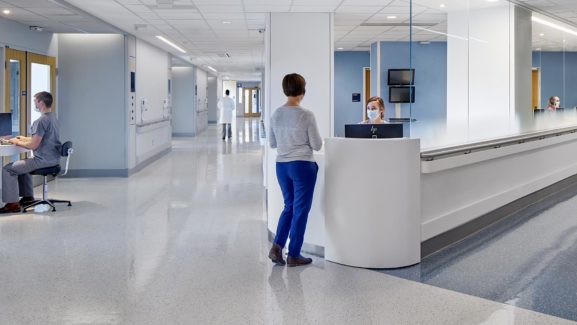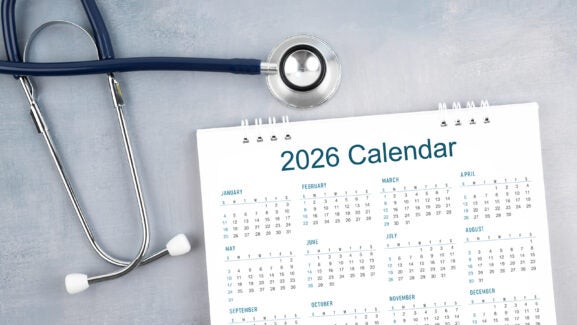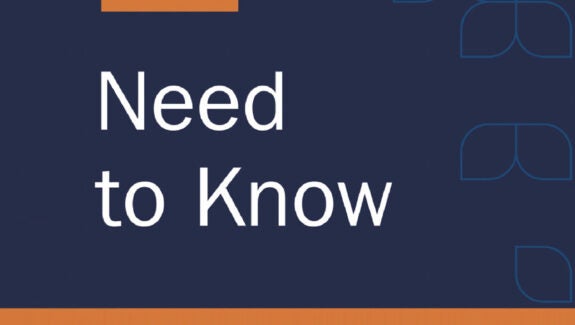

UVA Health Grant Makes an Impact on Organization Dedicated to Brain Injury Survivors
In 2024, UVA Health allocated more than $265,000 in grant funding to 42 local nonprofit organizations — 24 in the Prince William Health District; 18 in the Rappahannock-Rapidan Health District. These funds support our communities’ most vulnerable populations, reflecting our commitment to diversity, equity, and inclusion, and addressing healthcare workforce development.
Comprehensive Services for Survivors
Brain Injury Services (BIS) is dedicated to improving the lives of individuals living with acquired brain injuries (ABI), concussions, and traumatic brain injuries. Established in 1989, this nonprofit organization provides a wide range of services designed to foster health, independence, and the overall well-being for survivors of brain injuries. BIS envisions a community where every person touched by brain injury pursues their vision of a fulfilling life.
Andrew Gunn-Wilinski, Director of Marketing, Development, and Advocacy, BIS, says the organization was granted $5,000 in 2023 to help defray the costs of case managers for Prince William County, and applied again in 2024 for an additional $10,000 grant. “This support goes into a collective fund that pays for case managers, education, and training. We work closely with UVA Health’s occupational and physical therapist referrals for brain injuries, and all our services are given free of charge to our clients.”
The grant from UVA Health will focus on the Prince William County, Virginia area, but BIS also serves residents of northern Virginia, Fredericksburg, and surrounding counties.
Three Core Services
No two people are alike, and no two brain injuries are alike. The key to the BIS program’s success is the three core services: case management, support and psychoeducational groups, and specialized programs.
Case management serves as the foundation of the program. Through individualized assessments, case managers work with clients one-on-one to identify health goals and the necessary services to achieve them. By addressing challenges and coordinating services, case managers ensure that survivors receive the support needed to improve their quality of life, following guidelines set by national and state brain injury agencies.
Support and psychoeducational groups are another vital component. These groups offer a safe and supportive environment where clients can build knowledge about their condition, access community resources, and develop coping skills. The groups also provide emotional support — helping clients reduce isolation and make meaningful connections with others facing similar challenges.
Specialized programs are tailored to meet specific goals outlined in clients' Individualized Service Plans (ISP). These programs include vocational services, mental health counseling, volunteer opportunities, and community participation activities such as the ComPASS, PALS, and Person-centered volunteer programs. Through these services, survivors can enhance their social engagement, gain new skills, and work towards greater independence.
'Full, Meaningful Lives'
The BIS program sets measurable goals for all their clients, aiming for an 80% achievement rate for Prince William County residents in the following outcomes:
- Improving healthy behaviors meaningful to client.
- identifying triggers and developing coping strategies.
- increasing social and community engagement in appropriate group therapy sessions to include speaker's bureau, volunteer program, and peer support.
Performance measurement follows the statewide system developed by the Department of Aging and Rehabilitation Services (DARS) — ensuring accountability and success. BIS reports progress for each client quarterly to the state on the DARS Brain Injury Scorecard.
The program seeks to reach 50 brain injury survivors and provide educational outreach to 25 professionals and also meet the client’s goals related to their level of independence: remaining healthy, achieving all other personal goals, and satisfaction of services. This program is committed to helping survivors lead full, meaningful lives.
Latest News



